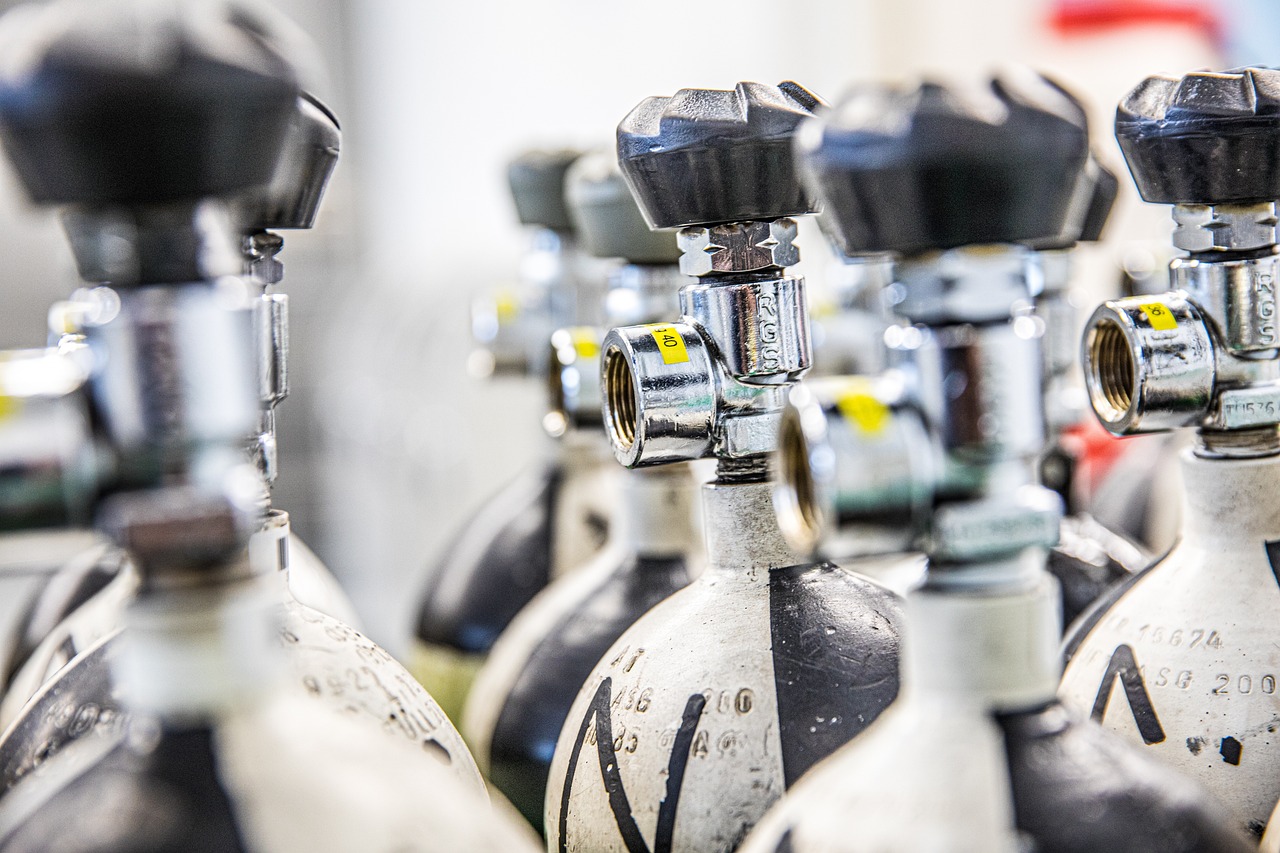How to Stay Calm During a Crisis
When facing challenging situations that trigger stress and anxiety, it's essential to have effective strategies in place to help maintain composure and navigate through the crisis with a sense of calm. In times of turmoil, our ability to stay level-headed can make a significant difference in how we manage the situation and our overall well-being.
One powerful technique to employ during a crisis is to practice deep breathing exercises. By focusing on your breath and engaging in controlled breathing, you can lower stress levels, calm your mind, and promote a sense of relaxation. Deep breathing techniques are known to have a direct impact on our nervous system, helping to reduce the fight-or-flight response that often accompanies stressful situations.
Another valuable approach is to shift your mindset by focusing on positive affirmations. Positive self-talk can be a powerful tool in changing your perspective and attitude towards the crisis. By affirming your strengths, resilience, and ability to overcome challenges, you can instill a sense of confidence and calm amidst the chaos.
Engaging in mindfulness activities such as meditation and yoga can also be beneficial in staying grounded and present during a crisis. These practices help to center your thoughts, cultivate awareness of the present moment, and reduce the impact of overwhelming emotions. Mindfulness allows you to acknowledge your feelings without being consumed by them, fostering a sense of inner peace.
It's important not to underestimate the value of seeking support from others during difficult times. Whether it's reaching out to friends, family members, or mental health professionals, sharing your feelings and concerns can provide emotional relief and perspective. Building a support network can offer comfort, guidance, and reassurance when facing a crisis.
While staying informed is crucial, it's equally important to limit your exposure to negative news that can exacerbate feelings of anxiety and fear. Finding a balance between staying updated on relevant information and avoiding constant exposure to distressing media can help protect your mental well-being and prevent feelings of overwhelm.
Physical activity plays a significant role in managing stress and promoting emotional well-being. Regular exercise releases endorphins, the body's natural mood boosters, which can help reduce tension, improve mood, and increase resilience. Incorporating physical activity into your routine, even during challenging times, can have a positive impact on your mental health.
Effective time management is key to reducing stress and increasing productivity during a crisis. By prioritizing tasks, setting boundaries, and organizing your schedule, you can create a sense of structure and control amidst uncertainty. Efficient time management allows you to focus on what's essential, delegate responsibilities, and avoid feeling overwhelmed by the demands of the situation.
Cultivating a gratitude practice can also contribute to your ability to stay calm during a crisis. By acknowledging and appreciating the positive aspects of your life, even in the face of adversity, you can foster resilience, emotional balance, and a sense of perspective. Gratitude helps shift your focus from what is lacking to what is present, promoting a mindset of abundance and hope.

Practice Deep Breathing Techniques
When facing challenging situations, it's crucial to have strategies in place to help maintain composure and manage stress effectively. Here are some tips and techniques to navigate through crises with a sense of calm and resilience.
In times of crisis, practicing deep breathing techniques can be a game-changer. By focusing on your breath and engaging in controlled breathing exercises, you can lower stress levels, calm your mind, and promote relaxation. Imagine each deep breath as a soothing wave washing over you, bringing a sense of peace and clarity amidst the chaos.

Focus on Positive Affirmations
During times of crisis, focusing on positive affirmations can be a powerful tool to help shift your mindset and maintain a sense of calm. Positive affirmations are statements that affirm positive qualities or outcomes, reinforcing a mindset of strength and resilience. By consciously choosing to focus on positive thoughts, you can reframe your perspective and build a more optimistic outlook, even in the face of adversity.
One effective way to incorporate positive affirmations into your daily routine is by creating a list of affirmations that resonate with you personally. These affirmations can be simple statements such as "I am capable of overcoming challenges" or "I choose to approach difficulties with a calm and clear mind." By repeating these affirmations regularly, especially during moments of stress or uncertainty, you can reinforce a sense of self-belief and inner peace.
Additionally, practicing gratitude can enhance the impact of positive affirmations. By acknowledging and appreciating the good things in your life, no matter how small, you can cultivate a sense of abundance and positivity. This can help counteract negative thoughts and emotions that may arise during a crisis, allowing you to maintain a more balanced and resilient mindset.
It's important to remember that positive affirmations are not about denying reality or ignoring challenges. Instead, they serve as a mental tool to help you navigate difficult situations with a sense of hope and determination. By incorporating positive affirmations into your daily routine, you can build a foundation of mental strength and emotional well-being that will support you in times of crisis.

Engage in Mindfulness Activities
Tips and strategies to help maintain composure and manage stress when facing challenging situations
When navigating through turbulent times, engaging in mindfulness activities can be a powerful tool to ground yourself and find inner peace. Mindfulness practices, such as meditation and yoga, offer a sanctuary amidst chaos, allowing you to cultivate a sense of tranquility even in the midst of uncertainty.
Imagine your mind as a vast ocean, with thoughts and emotions swirling like turbulent waves on the surface. Mindfulness activities help you dive deep beneath the surface, where the waters are calm and serene. By focusing on the present moment and your breath, you can quiet the storm within and find clarity amidst the chaos.
Moreover, mindfulness activities can enhance your self-awareness, enabling you to observe your thoughts and feelings without judgment. This non-judgmental awareness can help you respond to challenges with greater resilience and composure, rather than reacting impulsively out of fear or anxiety.
By incorporating mindfulness into your daily routine, you can train your mind to stay centered and balanced, no matter what storms may come your way. It's like building a sturdy lighthouse within yourself, guiding you through the darkness with unwavering light and stability.
Q: How often should I practice mindfulness activities during a crisis?
A: The frequency of mindfulness practice can vary depending on your personal preferences and schedule. Even a few minutes of mindfulness each day can make a significant difference in your ability to stay calm and centered during challenging times. Experiment with different durations and find a routine that works best for you.
Q: Can mindfulness activities really help reduce stress and anxiety?
A: Yes, mindfulness activities have been scientifically proven to lower stress levels, reduce anxiety, and promote overall well-being. By cultivating mindfulness, you can develop a greater sense of inner peace and resilience, allowing you to navigate crises with a calmer and more grounded mindset.
Q: I find it hard to quiet my mind during meditation. What should I do?
A: It's normal to experience racing thoughts or distractions during meditation, especially in the beginning. Instead of trying to force your mind to be quiet, simply acknowledge the thoughts and gently bring your focus back to your breath or a point of concentration. With practice, you'll find it easier to cultivate a sense of calm and stillness during meditation.

Reach Out for Support
During times of crisis, it's crucial to remember that you don't have to navigate the challenges alone. Reaching out for support is not a sign of weakness but a demonstration of strength in acknowledging your need for assistance. Whether it's confiding in a close friend, seeking guidance from a family member, or consulting a mental health professional, opening up about your feelings can provide immense relief and comfort.
Support systems play a vital role in helping individuals cope with overwhelming emotions and stress. They offer a safe space for you to express your concerns, fears, and anxieties without judgment. Sometimes, simply talking to someone who listens attentively can lighten the emotional burden and provide a fresh perspective on the situation at hand.
Moreover, seeking support can also lead to practical solutions and coping strategies that you may not have considered on your own. Friends and family members can offer valuable insights, empathy, and encouragement, while mental health professionals can provide professional guidance and therapeutic interventions tailored to your specific needs.
Remember, asking for help is a courageous step towards self-care and emotional well-being. It shows that you value your mental health and are willing to take proactive measures to address any challenges that come your way. By building a support network of trusted individuals, you create a foundation of resilience that can sustain you through even the toughest of times.

Limit Exposure to Negative News
When facing challenging situations, it's crucial to have strategies in place to maintain composure and manage stress effectively. Here are some tips and techniques to help you navigate through crises with a sense of calm and resilience.
During times of crisis, the constant barrage of negative news can significantly impact your mental well-being. While staying informed is important, it's equally essential to limit your exposure to distressing information that can fuel anxiety and fear. Consider setting boundaries on how much news you consume each day and opt for reliable sources that provide updates without sensationalizing events.
Creating a healthy balance between staying informed and protecting your mental health is key. Engage in activities that bring positivity and light into your life, whether it's spending time in nature, practicing a hobby, or connecting with loved ones.
Remember, your mental well-being is just as important as staying informed, so prioritize self-care and choose to consume news mindfully to maintain a sense of equilibrium during challenging times.
Q: How can I determine the credibility of news sources during a crisis?
A: Look for reputable sources with a history of accurate reporting and fact-checking. Avoid spreading unverified information and rely on official sources for updates.
Q: Is it okay to take breaks from the news cycle during a crisis?
A: Absolutely. It's essential to prioritize your mental health and well-being. Taking breaks from negative news can help reduce stress and anxiety levels.
Q: How can I support others who may be struggling with the constant influx of negative news?
A: Check in regularly with friends and family members, offer a listening ear, and encourage them to take breaks from news consumption. Providing emotional support and understanding can make a significant difference during challenging times.

Stay Physically Active
When facing challenging situations, it's crucial to find ways to maintain composure and manage stress effectively. One powerful strategy to help you stay grounded during a crisis is to . Engaging in regular exercise not only benefits your physical health but also plays a significant role in improving your mental well-being.
Physical activity, whether it's a brisk walk, a yoga session, or a workout at the gym, can help release endorphins, often referred to as the "feel-good" hormones. These chemicals in the brain are natural mood lifters that can reduce feelings of stress and anxiety, promoting a sense of calmness and relaxation even in the midst of chaos.
Moreover, staying physically active can help reduce tension in your body, which tends to build up during stressful situations. By focusing on your physical movements and breathing patterns, you can create a sense of balance and control that is essential for managing emotions during a crisis.
Think of physical activity as a form of self-care that allows you to prioritize your well-being amidst challenging circumstances. Whether you prefer solo workouts or group fitness classes, finding an activity that you enjoy can serve as a vital outlet for releasing pent-up emotions and boosting your resilience.
So, the next time you feel overwhelmed by a crisis, consider incorporating physical activity into your routine as a proactive way to nurture both your body and mind. Remember, taking care of yourself physically can have a profound impact on your emotional state and help you navigate difficult times with greater strength and clarity.

Practice Time Management
When facing a crisis, managing time effectively can make a significant difference in how you navigate through challenges. By practicing good time management, you can create a sense of structure and control in your life, even amidst chaos. One effective technique is to prioritize tasks based on their urgency and importance. This allows you to focus on what truly matters and avoid feeling overwhelmed by a long to-do list.
Setting boundaries is another crucial aspect of time management during a crisis. It's essential to know when to say no to additional responsibilities or requests that may add unnecessary stress. By establishing clear boundaries, you protect your time and energy, allowing you to concentrate on what is essential for your well-being and productivity.
Organizing your schedule efficiently is key to managing time effectively during a crisis. Utilizing tools such as calendars, planners, or digital apps can help you stay on track with your tasks and appointments. By creating a structured routine, you can reduce the chances of feeling scattered or overwhelmed, enabling you to approach each day with a clear plan in mind.

Cultivate a Gratitude Practice
When faced with challenging situations, it's crucial to have strategies in place to maintain composure and manage stress effectively. Here are some tips to help you navigate through crises with a sense of calm and resilience.
During moments of crisis, controlled breathing can be a powerful tool to lower stress levels and promote relaxation. By focusing on your breath and practicing deep breathing techniques, you can bring a sense of calm to your mind and body, helping you navigate through difficult times more effectively.
Positive self-talk can play a significant role in shifting your mindset towards a calmer perspective during crises. By engaging in positive affirmations and reinforcing optimistic beliefs about yourself and the situation, you can cultivate a more resilient and positive outlook even in the face of adversity.
Exploring mindfulness practices such as meditation and yoga can help you stay present and grounded amidst chaos and uncertainty. These activities can provide a sense of clarity and peace, allowing you to navigate through challenging times with a greater sense of awareness and balance.
It's essential to seek help and support from friends, family, or professionals when dealing with overwhelming emotions during a crisis. By reaching out to others, you can gain valuable perspective, guidance, and emotional support to help you cope effectively with the challenges you're facing.
While staying informed is important, excessive exposure to distressing news can fuel anxiety and fear during a crisis. Finding a balance between staying informed and protecting your mental well-being is crucial. Limiting your exposure to negative news can help you maintain a sense of calm and focus on what you can control.
Regular exercise is not only beneficial for your physical health but also plays a significant role in improving your mental well-being. Engaging in physical activity can release endorphins, reduce tension, and boost your overall mood, even in challenging times. Prioritizing physical activity can help you manage stress more effectively and maintain a sense of well-being.
Effective time management is key to reducing stress and increasing productivity during crises. By prioritizing tasks, setting boundaries, and organizing your schedule efficiently, you can create a sense of structure and control in chaotic situations. Managing your time effectively can help you focus on what's important and navigate through challenges with greater ease.
In times of crisis, cultivating a gratitude practice can have a profound impact on your emotional well-being and resilience. By acknowledging and appreciating the positive aspects of your life, even amidst adversity, you can foster a sense of gratitude and perspective that can help you navigate through challenges with grace and strength.
If you have any questions or concerns about staying calm during a crisis, check out the following FAQs:
- How can deep breathing help during a crisis? Deep breathing can help lower stress levels and promote relaxation, allowing you to maintain composure in challenging situations.
- Why is it important to limit exposure to negative news? Excessive exposure to distressing news can fuel anxiety and fear, impacting your mental well-being during a crisis.
- How can mindfulness activities benefit me during a crisis? Mindfulness practices like meditation and yoga can help you stay present and grounded, providing clarity and peace amidst chaos.
Frequently Asked Questions
- How can deep breathing techniques help during a crisis?
Deep breathing techniques can help calm the mind and body by reducing stress levels and promoting relaxation. When practiced regularly, controlled breathing can aid in maintaining composure and clarity during challenging situations.
- What are positive affirmations and how do they contribute to staying calm?
Positive affirmations are statements that affirm and reinforce positive beliefs about oneself. By focusing on uplifting self-talk, individuals can shift their mindset towards a more optimistic and calmer perspective, helping them navigate crises with resilience.
- How does engaging in mindfulness activities benefit individuals during times of crisis?
Engaging in mindfulness activities such as meditation and yoga can help individuals stay present, reduce anxiety, and cultivate a sense of inner peace amidst chaos and uncertainty. These practices promote emotional balance and mental clarity in challenging situations.
- Why is reaching out for support important during a crisis?
Seeking support from friends, family, or professionals is crucial during a crisis as it provides individuals with emotional validation, practical assistance, and a sense of connection. It can help in coping with overwhelming emotions and navigating difficult circumstances more effectively.
- How can limiting exposure to negative news help in managing stress?
Limiting exposure to distressing news can prevent the escalation of anxiety and fear. By balancing staying informed with avoiding excessive negativity, individuals can protect their mental well-being and maintain a more balanced perspective during challenging times.



















